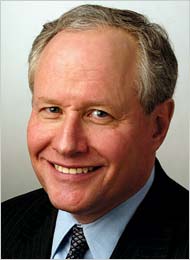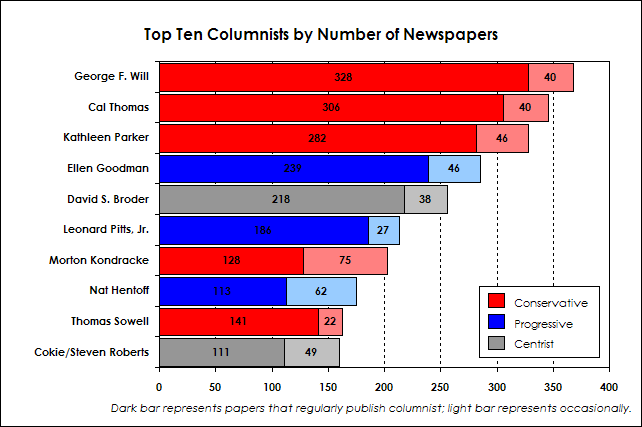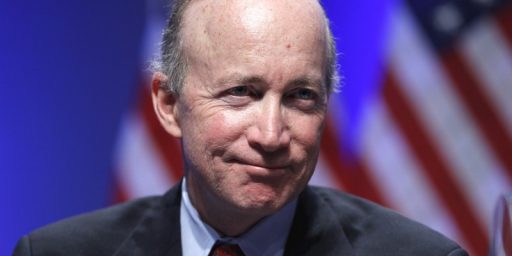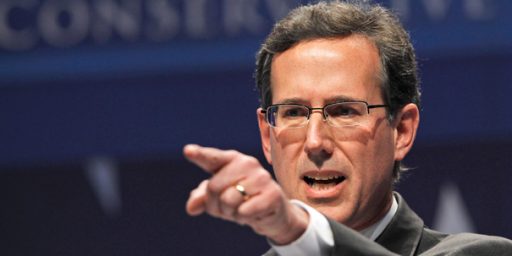Bill Kristol’s Replacement
 As everyone knows by now, Bill Kristol’s last NYT column appeared yesterday. Aside from the italicized footer “This is William Kristol’s last column,” it was unremarkable. Which, most observers on the Left and Right seem to agree, was something it had in common with most of Kristol’s NYT columns and largely explains why the one year experiment was not continued.
As everyone knows by now, Bill Kristol’s last NYT column appeared yesterday. Aside from the italicized footer “This is William Kristol’s last column,” it was unremarkable. Which, most observers on the Left and Right seem to agree, was something it had in common with most of Kristol’s NYT columns and largely explains why the one year experiment was not continued.
There are some dissenters, with Noel Sheppard and Ace contending that Kristol was fired for having the temerity to criticize the NYT. The latter points out that, while Kristol is being criticized for factual errors, “barely a Paul Krugman column goes by without a large error — and some of these are even noted by the Times’ Ombudsman.” Then again, “no worse than Krugman” is hardly a banner one wants to fight under.
More interesting than Kristol’s departure — no worries, he still keeps his gig as editor of The Weekly Standard and as a permanent fixture on Fox News, so he’ll be able to feed his family — is the speculation on who might replace him as the NYT House Conservative.
Radley Balko writes, “You know what would be great? If the Times could find a genuine advocate of limited government (or at least a bona-fide civil libertarian) to take Kristol’s place.” The links provide subtle endorsements of Jacob Sullum, David Boaz, Dave Kopel, Gene Healy, and Nat Hentoff.
Kevin Drum suggests, “It shouldn’t be a “liberal’s conservative,” it should be a genuine, dedicated, smart, reality-grounded, conservative’s conservative — someone who will drive liberals crazy. Who best fits that bill?”
Glenn Reynolds suggests Ann Althouse.
Michael Tomasky offers some interesting musings ranging from David Frum to Chris Caldwell to Ross Douthat to Reihan Salam to Tyler Cowen to Kathleen Parker. In another post, he suggests Peggy Noonan, Karl Rove, and Christopher Buckley. His bottom line strikes me as inarguable:
A bad idea would be another neocon who’s name is well-known but whom events have discredited as a thinker. That would be the lazy and obvious thing to do (just like hiring Kristol was the lazy and obvious thing to do). I think the Times should have a second conservative (after David Brooks), but the editors should put more effort into the selection this time.
One intrepid commenter even nominates yours truly. Twice. While I appreciate the consideration, I’m rather sure I won’t be on the list of finalists.
Patrick Ruffini nominates Rush Limbaugh, prompting Daniel Larison to note that he’s “not a writer by trade or by training.”
If the problem with many of Kristol’s columns was the feeling that he was phoning it in, what are the odds that a radio host whose public persona is built to a large extent on mocking establishment media outlets would take the job more seriously? Were it offered to him, his audience would probably accuse him of “selling out” if he took such a position. He has no incentive to do it, and the last thing conservatives need at the moment is to have Limbaugh take an even more prominent place as one of their major spokesmen. There are no doubt many mainstream conservative syndicated columnists who should be considered, as these are people who already write columns professionally, have a well-established readership and frankly have better instincts for what most other mainstream conservatives want to read than various heterodox alternatives do. If the NYT‘s goal was to expand its circulation and increase traffic on its site, while also regularly providing a conservative perspective on its op-ed page, it would look at columnists already familiar and acceptable to the broader conservative movement. If the goal is to find a more “safe” conservative writer who will not antagonize regular subscribers and readers, their options are very limited these days.
I think that’s right. Matt Yglesias is also onto something when he writes,
The goal in finding a conservative writer should be to find a writer who’s not a liberal but who liberals enjoy reading. That doesn’t need to be columns that make liberals feel good about themselves (e.g., conservatives writing about how brain-dead the GOP is, etc.) but it needs to be columns that liberals find not maddening but challenging. When I read Tyler Cowen’s skeptical notes on the stimulus, for example, I don’t become infuriated, I become better-informed about the issue. At his best, this is what David Brooks contributes on that page—he’s raised issues about public choice and so forth that liberals tend to neglect but that are genuinely important.
That’s the standard you should be reaching for, though, people who can take on strong liberal arguments and raise strong doubts about them.
That’s why I read Yglesias, Drum, Tomasky, Ezra Klein, and others. It’s a good standard, I think, for judging opinion journalists.
I would also add to the criteria that it be someone with a track record in blogging or other rapid-response commentary, as that’s the wave of the future for punditry. And, frankly, it would be good if it were someone who hasn’t already been a TV talking head for years. Why not someone who has some ideas that will actually surprise people?
Larison would be an excellent choice as would Douthat, Salam, or Cowen. There are probably a dozen others who meet the standards outlined above.
UPDATE: Orin Kerr offers a plan that’s simultaneously devious and efficient:
If I were at the Times, I would hire five columnists instead of one — paying them very little, because hey, they’re getting terrific exposure — and promise them that their columns would be posted on the Times website and then considered for inclusion in the paper version. I would then pick the best column written that week for inclusion in the paper version. Over time, a great columnist might emerge from the pack. And even if no great columnist emerges, at least you would avoid the problem of columnists who have the gig and are just coasting.
That would actually work.
Correction: The original misattributed Radley Balko’s quote to Kevin Drum. I’ve fixed it above.






However, if Kristol’s purpose at the NYT was to reinforce Times’s readers’ views of conseratives, he probably served that function admirably.
Hentoff would be a good pick–particularly since he was just canned from the Village Voice a few weeks ago.
Will Wilkinson!
(I say this despite disagreements with Will on a variety of things. He would shake up the MSM.)
(I enjoy Tyler’s blog more than most, but more for his eclecticism. He’s got less of the vision thing. A complement!)
Kevin Drum writes, “You know what would be great? If the Times could find a genuine advocate of limited government (or at least a bona-fide civil libertarian) to take Kristol’s place.â€
Actually, I wrote that.
http://www.theagitator.com/2009/01/26/andthe-best-single-sentence-ive-read-in-months/
I just cackled. Seriously. Hiring Althouse would, um, not be good for conservatism’s image.
Pat and I have come down on opposite sides of the fence a number of times over the years, but I think he’s onto something, here. Certainly, it would be the first solid indication ever, that the Times has managed to work it’s way out of it’s lockstep liberalism.
And I find the idea that Limbaugh isn’t a professional writer to be an interesting complaint, gievn the number of non-professional writers plying their trade on the net these days… the net rises, the newspapers fall, and he’s complaining Limbaugh isn’t a pro writer?
Sheesh.
And yeah, it was Radley. That Drum would ever come around to admit the Times was not offering up real conservatives, would be the biggest story here, were it true.
That may not have been Kristol’s purpose, but it certainly was the purpose of the Times in picking him.
This is important, because lockstep liberalism is bad, as opposed to being a lockstep neocon, which, apparently, is good…
Why would any self respecting conservative allow the New York Times to use them for cover in the game of pretending objectivity and non-bias – not to mention, neutering your conservative message?
Beware the conservative that needs approval of the left, including; McCain, Noonan, Parker and that ilk. Look what happened to Ceasar for trusting Brutus.
Christopher Buckley!
I’ll give you Yglesias and Drum. Never read Tomasky. But the little bit of Ezra Klein I’ve read is exceptionally simple-minded, like the concept that health care is somehow immune from rationing effects. Apparently sometime between 2007 and 2008 he realized that rationing effects do exist, so perhaps homicide is the answer, because person A’s education is more important than person B’s life. What a kind-hearted liberal.
Perhaps you’d do me the favor of linking one of his intellectually challenging pieces sometime.
I suppose I’ll consider it if they ask me, but I’m not sure I want to be associated with the NY Times.
But seriously, how about Arnold Kling or anybody from the Cato Institute or the American Enterprise Institute?
I am not going to advise the NYT on who to choose, although James’s suggestions are reasonable.
On the other hand, I find it amusing that after being pushed out of Time and the NYT, Kristol then gets a regular column at The Washington Post, a paper which already had a range of conservatives present, including Will and Krauthammer. How many chances do conservatives get to fail in the so-called liberal media?
That depends, Anjin; Are we talking supposedly unbiased newspapers, or individuals, here?
That’s a question I’ve asked often enough, DL… and never really got much of an answer. Of course there seems some question about Kristol’s conservative creds. His last worthy quote was during Bush 41, frankly.
Riiiiiight. Bill Kristol compares to nobel economist paul krugman, who for instance called the housing bubble in 2005. Turn down the Fox News, James.
Those are all good suggestions.
Aside from the occasional post-debate coverage, I haven’t watched Fox News in years. Indeed, about the only TV news I watch is ABC’s This Week by Tivo delay, mostly for the roundtable. Which, ironically, frequently includes Krugman.
Krugman’s brilliant. He’s a Nobel Prize economist, after all. He’s even a good writer with, for example, The Age of Diminished Expectations being an instant classic. But he’s uneven at best as a columnist. He’s not great in short form and he feels constrained to be more polemical than I think is his academic instinct.
I think that pretty much sums up why I have a hard time reading his columns. As opposed to Kristol who is just a blithering idiot so much of the time.
My own vote would be for Larison, always worth reading.
Radley Balko writes, “You know what would be great? If the Times could find a genuine advocate of limited government (or at least a bona-fide civil libertarian) to take Kristol’s place.â€
Yaron Brook of the Ayn Rand Institute. No one can draw a crowd like Brook can. He possesses gravitas and is intellectual, yet his writings are remarkably accessible. The NYT needs him.
Good idea bringing in someone from the Ayn Rand Institute. Because Rand’s ideas don’t get nearly the attention they deserve. I mean, if we’d had one of her slavish acolytes in charge of our economy for the last decade or so, just think what great shape we’d be in today.
Oh. Right. Nevermind.
It should be someone from the post boomer generation. That rules out Rush. Also, Rush is really an entertainer, not a thinker. Conservative really dont need another non-thinker representing them. Larison, Douthat, Wilkinson, Joyner, Poulos, Cowen are all names I like. I think they should stay away from think tank types. Five sounds like too many, but maybe go with three, in which case one should be a strong social conservative also.
Steve
Larison would definitely be quite a contrast to the other New York Times writers, since he’s much more libertarian.
Douthat is a decent writer, although Tyler Cowen would be better (particularly since you could have him face off with Paul Krugman).
I think Krugman is a great writer, most of the time – I love his books and columns. You just need to remember that his real specialty and genius in economics is in international trade.
I like reading Larison, but he would probably come off at first as the “conservative who criticizes conservatives”. That and his views (aside from opposition to the Iraq war) can get pretty extreme, he may not be palatable to most. I think Cowen or Buckley would be the most interesting.
Althouse would just be a conservative Maureen Dowd. Pass.
Are you as upset about the WSJs migration into Fox country?
Besides, who said they are unbiased? Most papers have a pretty well defined editorial bias. A lot of them have a slant in reporting too. As for actual journalism, there is not a whole lot of that going on in America’s newspapers these days.
Really, I think we all have to say thank God for the internet. It may get silly in here, we may be petty, partisan and whatever. Still, I do not want to contemplate what it would be like if traditional media was the only game in town.
Why? Have their been specific editorial changes you can point to? That’s the remarkable thing about that ownership change… the content hasn’t changed any, that I can see.
Or is it that you’ve got Fox tagged a certain way, and anything they coe up with must be suspect?
OPen-mindedness, liberal style.
Well you do have a point, the Journal was rather biased to the right before Murdoch took over. But that did not seem to bother you.
Not at all. Their editorial section was fairly well center, their ‘news’ service had a leftist tilt to it. Neither has really changed.
So, once again, you seem more worried about the label than the actual content.
And Anjin? We had decades, where the supposedly ‘traditional’ media was the only game in town. The result? decades of leftist domination.